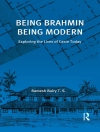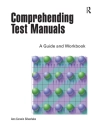This edited collection brings together new research by world-leading historians and anthropologists to examine the interaction between images of plague in different temporal and spatial contexts, and the imagination of the disease from the Middle Ages to today. The chapters in this book illuminate to what extent the image of plague has not simply reflected, but also impacted the way in which the disease is experienced in different historical periods. The book asks what is the contribution of the entanglement between epidemic image and imagination to the persistence of plague as a category of human suffering across so many centuries, in spite of profound shifts in our medical understanding of the disease. What is it that makes plague such a visually charismatic subject? And why is the medical, religious and lay imagination of plague so consistently determined by the visual register? In answering these questions, this volume takes the study of plague images beyond its usual, art-historical framework, so as to examine them and their relation to the imagination of plague from medical, historical, visual anthropological, and postcolonial perspectives.
Cuprins
1. Introduction: Imaging and Imagining Plague- Christos Lynteris.- 2. Why Is Black Death Black? European Gothic Imaginaries of ‘Oriental’ Plague- Nükhet Varlık.- 3. Painting the Plague: 1250-1630- Sheila Barker.- 4. Pesthouse Imaginaries- Ann G. Carmichael.- 5. Picturing Plague: Photography, Pestilence and Cremation in Late Nineteenth- and Early Twentieth-Century India- David Arnold.- 6. Reflexive Gaze and Constructed Meanings: Photographs of Plague Hospitals in Colonial Bombay- Abhijit Sarkar.- 7. Plague in India: Contagion, Quarantine, and the Transmission of Scientific Knowledge- Samuel Cohn Jr..- 8. Bamboo Dwellers: Plague, Photography and the House in Colonial Java- Maurits Bastiaan Meerwijk.- 9. Making a Model Plague: Paper Technologies and Epidemiological Casuistry in the Early Twentieth Century- Lukas Engelmann.- 10. Ethnographic Images of the Plague: Outbreak and the Landscape of Memory in Madagascar- Genese Marie Sodikoff and Z. R. Dieudonné Rasolonomenjanahary
Despre autor
Christos Lynteris is a social anthropologist working on the anthropological and historical examination of epidemics, zoonosis, and epidemiological epistemology. He is Professor of Medical Anthropology at the University of St Andrews, UK, currently leading a Wellcome-funded project on The Global War Against the Rat and the Epistemic Emergence of Zoonosis. He was Principal Investigator of the ERC funded research project Visual Representations of the Third Plague Pandemic (University of Cambridge, 2013-17, University of St Andrews 2017-2018).












